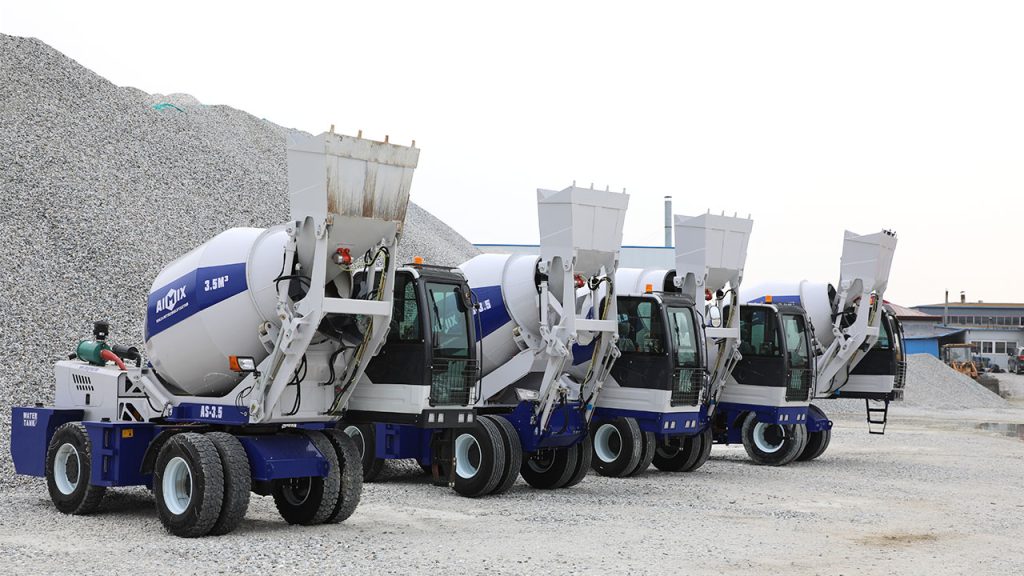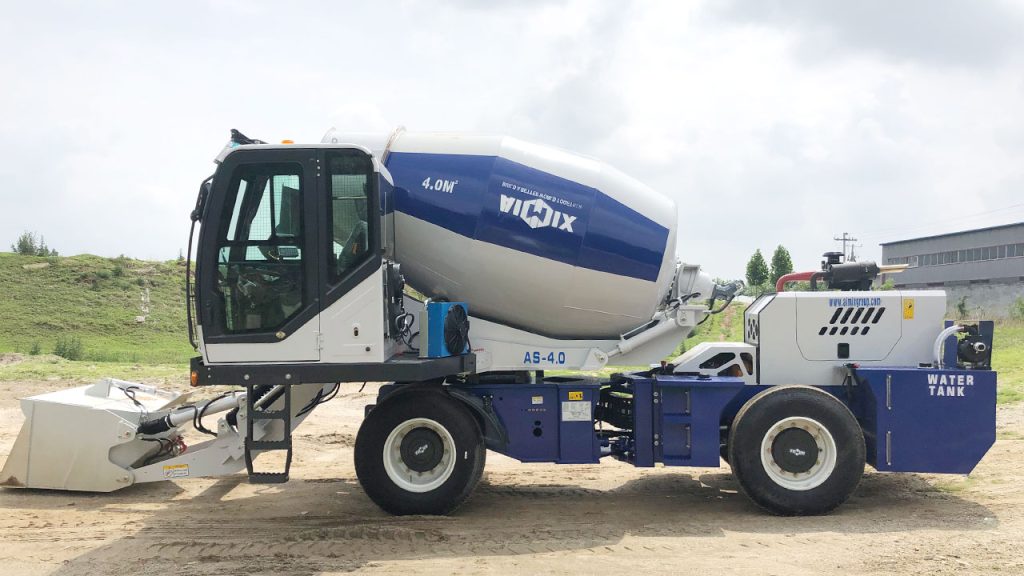In the construction industry, minimizing waste is essential for maintaining profitability, sustainability, and competitiveness. Self-loading concrete mixers are valuable assets in this endeavor, offering the convenience and efficiency of on-site concrete production. However, to fully realize their potential, it’s crucial to implement strategies that effectively avoid waste during production.
1. Accurate Batch Control:
One of the primary sources of waste in concrete production is inaccurate batching of materials. To avoid overuse or underuse of raw materials, aimix self loading concrete mixer operators must adhere to precise batch control procedures. This involves carefully measuring and proportioning cement, aggregates, water, and additives according to the specified mix design. Utilizing automated batching systems and digital controls can enhance accuracy and consistency, minimizing material waste and ensuring optimal concrete quality.

2. Efficient Material Handling:
Efficient material handling is essential for minimizing waste and maximizing productivity in self-loading mixer operations. Operators should carefully plan and organize material delivery and storage to minimize handling and transportation inefficiencies. Additionally, proper stockpile management and inventory control help prevent material spoilage, segregation, and contamination, reducing the need for disposal and replacement of unused materials.
3. Maintenance and Calibration:
Regular maintenance and calibration of self loading concrete mixer trucks are critical for ensuring accurate operation and minimizing waste. Components such as weighing systems, mixers, pumps, and hydraulic systems should be inspected and serviced according to manufacturer recommendations. Proper calibration of equipment ensures precise measurement and dispensing of materials, minimizing errors and reducing the likelihood of waste during production.
4. Optimal Mix Design:
Selecting an optimal mix design is essential for achieving desired concrete properties while minimizing waste. Engineers and project managers should carefully consider factors such as strength requirements, workability, durability, and environmental conditions when designing concrete mixes. Utilizing locally available materials and incorporating supplementary cementitious materials (SCMs) can help optimize mix designs, reduce reliance on virgin materials, and minimize waste generation.

5. Just-in-Time Production:
Implementing a just-in-time (JIT) production approach can help minimize waste by reducing excess inventory and material stockpiles. Self-loading mixers enable on-demand concrete production, allowing operators to batch and deliver concrete precisely when and where it’s needed. By aligning production schedules with project requirements and minimizing idle time, JIT production optimizes resource utilization, reduces waste, and improves overall efficiency.
6. Training and Education:
Effective training and education are essential for ensuring that self loading feed mixer for sale operators understand proper operating procedures, equipment capabilities, and waste reduction strategies. Training programs should cover topics such as batch control, equipment maintenance, material handling, and mix design optimization. By empowering operators with the knowledge and skills to identify and address potential sources of waste, companies can enhance operational efficiency and reduce overall production costs.
7. Monitoring and Continuous Improvement:
Regular monitoring of production processes and performance metrics is crucial for identifying areas of inefficiency and waste. Self-loading mixer operators should track key performance indicators such as material consumption, batch accuracy, equipment downtime, and waste generation rates. By analyzing data and identifying trends, companies can implement targeted improvement initiatives to optimize production efficiency and minimize waste over time.
8. Environmental Considerations:
In addition to economic benefits, minimizing waste in self-loading mixer production contributes to environmental sustainability. By reducing material consumption, energy usage, and waste generation, companies can minimize their carbon footprint and environmental impact. Utilizing recycled materials, implementing energy-efficient technologies, and adopting sustainable practices throughout the production process further enhance environmental stewardship and support a more sustainable construction industry.
Conclusion:
Efficient waste management is critical for maintaining profitability, sustainability, and competitiveness in the construction industry. Self loading mobile concrete mixture offers a versatile and efficient solution for on-site concrete production, but maximizing their potential requires effective waste avoidance strategies. By implementing accurate batch control, efficient material handling, regular maintenance and calibration, optimal mix design, just-in-time production, training and education, monitoring, and continuous improvement, companies can minimize waste, optimize efficiency, and enhance overall productivity in self-loading mixer operations. By prioritizing waste reduction and sustainability, the construction industry can build a more resilient and environmentally responsible future.